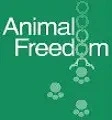Who is responsible for animal rights? |
We are all responsible for animal rights
For an optimal and responsible behavior towards animals. We are all responsible for optimal and responsible behavior towards animals. From almost all contributions to Animal Freedom it becomes apparent that our mentality and our behavior should be based on the principle that every animal has a right to live in freedom. The freedom to behave according to our natures. |
The right to live in freedom can only be fully upheld, and the interests of animals can only be served, by refusing to eat meat, by no longer keeping animals as pets and by letting animals live freely in their natural environment in a natural balance, with sufficient space and surrounded by their natural enemies.
But even in a society where meat is consumed and where pets are kept it is worthwhile to aim for better animal treatment and the preservation of animal rights. |
Different levels of responsibility
It is obvious that this responsibility lies on different levels:
- With voters. Voters can influence politics by casting their votes.
- With individuals. The individual (as a consumer) has a major influence on economics.
- With consumers. Consumers have a daily choice to prepare food in a responsible way. Responsibility also means to broaden the horizon and to learn more about alternative ways of preparing food.
- With supermarkets and fast-food chains. These buy massive quantities of meat at low prices, and increase meat consumption. If they were restricted to buying only local food, then this could put a stop to the international trade in meat from factory farming.
- With interest groups. These groups can influence the public opinion and attitude by negotiating and providing information. The latter especially aimed at the media.
- With churches, which dictate standards and morality for their congregations.
- With legal organizations. The average Dutch pig farm is only inspected once every seventeen years on the wellbeing and health of the animals, while on the other hand the majority of these farmers break at least one law concerning the wellbeing of pigs (source: annual report of the Dutch inspection organization).
- With politicians, who can reach international agreements about the treatment of animals, and issue laws concerning basic animal rights, for example through the World Trade Organization. By stopping the international trade in animals the demand for (the current quantities coming from) factory farming will decrease and (the quality of) biological farming can and will be encouraged.
- With the government, which can pass laws and regulations designed to keep a keen eye on the market and the way animals live and how they are treated. The government handles taxes and should at least guard against abuse of governmental subsidies that promote inequality regarding the treatment of animals.
- With farmers and pet owners, who are the main responsible and the only ones directly influencing their animals' living standards and quality of life.
|
Gradations of responsibility
The latter in this list are more responsible than the former. This responsibility is even greater in the case of spokesmen for the agricultural community. They have a position in society where they can influence the opinions and behavior of others.
Since we have become more and more individualistic, the roles of church and government as guardians of morality have become smaller and smaller. There is nothing wrong with this development, but we have to stay sharp so we do not harm vulnerable parties.
The protective role lies primarily with the government. Of course others can help the government by making the public aware about keeping our dealings with animals endurable. The same of course goes for churches, schools and other public organizations, etc. |
Interests and responsibilities
Besides the responsibility, the meat-eating consumer also has a special interest in low prices for meat. This is the reason for the great difference between what the consumer says and what the consumer does.
The industry also has its economical interests in the exploitation of animals, for example: banks, distribution channels, the meat processing industry, the fodder industry, restaurants, bars, pubs, etc.
Farmers like to represent themselves as 'victims', victims of the banks, the fodder industry and the consumers. This is merely a way of drawing attention away from their prime responsibility. Every farmer who stops with factory farming helps to reduce the suffering of animals. |
Take your own responsibility
Everyone is (on more than one level) responsible, which makes it easier to push away this responsibility towards others. We must dare to point out responsibilities to each other. Unfortunately, this is not a favorite pastime for (Dutch) people. Take your responsibilities on more than one level and in more than one way. There is not just one way, there are thousands. |
Everyone can do something for animals
Do not wait for others to begin, today you can start (at home, work or school) by setting the right example for others. There is so much you can do for animals and it can be fun and rewarding as well.
Society? That is (up to) you too! |
|
|
|
|
| |

